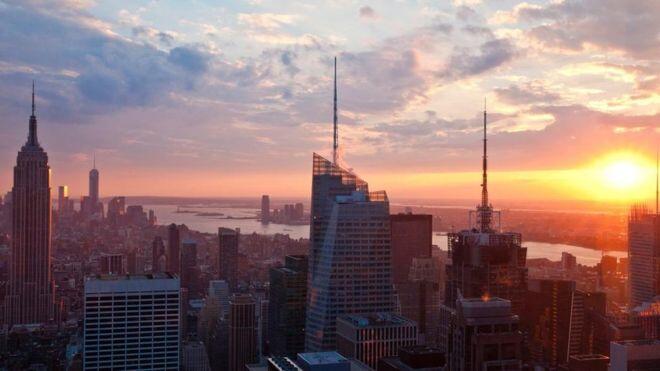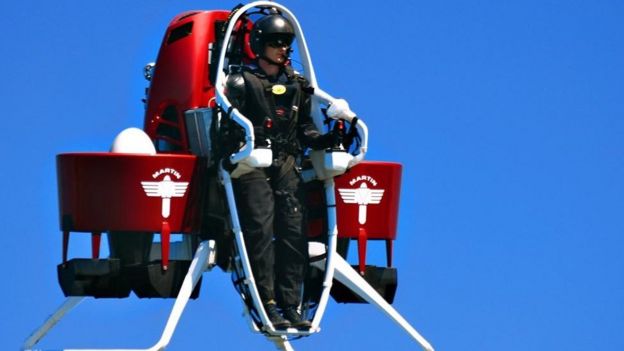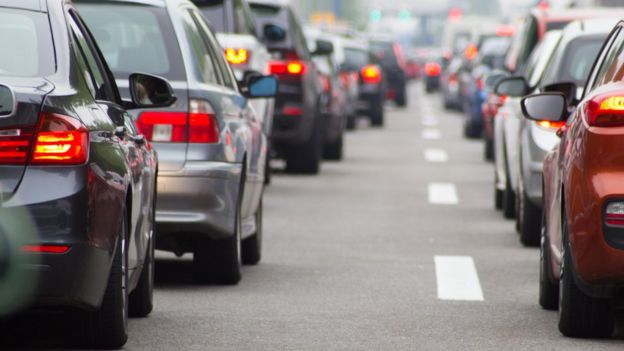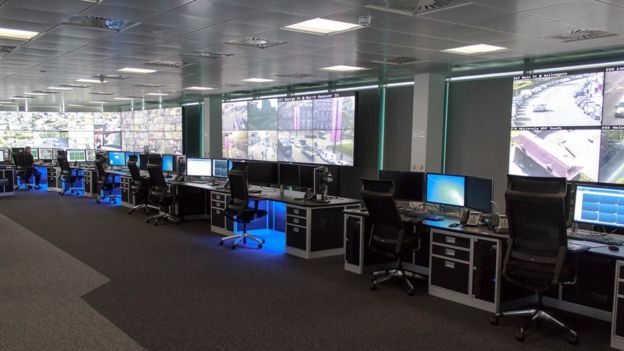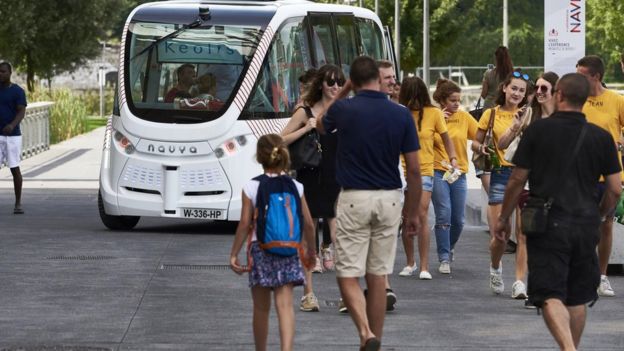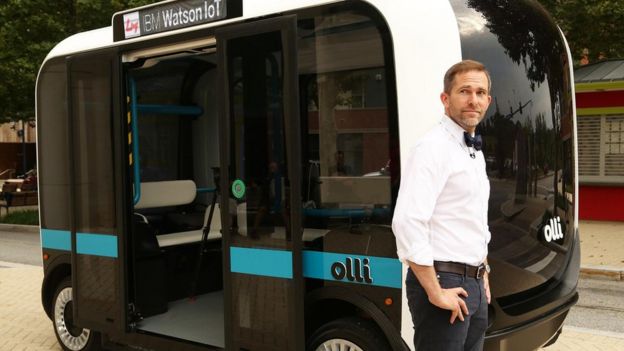Over the next four weeks, BBC News will be offering a snapshot of the day in the life of a city – looking at how technology is transforming our urban landscapes, now and in the future.
We will look at how technology is improving the morning commute, what it is doing to make our working day better, how it will transform our evening’s entertainment and what goes on at night in the smart cities that increasingly never sleep.
We start as urban dwellers around the world begin the day – with the morning commute. In the future, that may mean hailing a jetpack.
“Jetpacks will be part of future cities,” Peter Coker, vice-president of innovation at KuangChi Science, Martin Aircraft Company’s major Chinese shareholder.
“I see it as being the Uber of the sky.”
Martin Aircraft Company, based in New Zealand, already has a working prototype that can fly at 2,800ft (850m) at 45km/h (27mph) for 28 minutes.
And Mr Coker says commuters will be able to hail an unmanned jetpack via a smartphone app.
He admits there will be “regulatory hurdles” to overcome and, if the airways become packed with jetpacks, a need for “automatic collision avoidance”.
But, according to Michael Read, who is one of only two test pilots who have actually flown the jetpack, it will be worth it.
“It’s intuitive, free-flowing and most of all, fun,” he says.
“Being able to be transported up into the sky in such an unconstrained way is truly a unique and enjoyable experience.
“Of the nearly 3,000 people we’ve had fly our simulators, almost every single one of them has left with a big smile on their faces.
“Given that the simulator is very close to reality, this gives us the biggest indication that it is as much fun as people imagined it would be.
“I certainly enjoy it.”
Congestion is one of the biggest problems facing cities, and with statistics projecting that close to 70% of the world’s population will live in urban areas by 2050, it is something that they have to deal with.
There is little that technology can do to cut down on the number of people in cities, but it is increasingly being relied on to keep traffic moving.
And car-sharing schemes, such as ZipCar and UberPool, can cut the number of cars on the road.
In Glasgow, the government has spent £12m on an operation centre that monitors 500 cameras and can intervene at more than 800 traffic lights across the city.
And the system gives priority to late-running buses to persuade more people back on to public transport.
In Boston, the mayor’s office has devoted a whole department to what it calls new urban mechanics, an innovative city lab aimed at improving engagement between citizens and government.
Among other projects, it is looking at how to make traffic lights smarter.
Real-time alterations to the red-and-green cycle can cut congestion time by up to 50% and make a city drive much more agreeable, says Prof Christos Cassandras, a smart cities expert from Boston University, who helped develop the system.
“We have all been in the situation where we keep getting stuck behind red light after red light, so imagine if we can control the traffic lights or even the car to alert drivers that if they accelerate a little bit they will make that green light,” he says.
Cars that can do just that are already being tested on the roads in Chinese cities, says Prof Cassandras.
Some cities, such as Stockholm, charge cars higher rates to travel at peak times in an effort to ease the rush hour.
In Copenhagen, half of all city residents get to and from work or school via bike, helping with the city’s goal of becoming carbon neutral by 2025.
Traffic jams have fascinated scientists for decades, and there is even a branch of maths – jamology – devoted to their study.
“We humans are terrible drivers, and we cannot keep our speed constant,” Prof Cassandras says.
That problem could be eliminated with the advent of automated cars – and with most of the big manufacturers promising to have fleets on the road by 2020 or soon after, that is a looming reality.
But a University of Michigan study suggests 23% of Americans would not consider riding in a driverless cars, while 36% would be so anxious they would constantly watch the wheel.
In response, companies are making vehicles that look friendlier.
Semcon has a self-drive car that interacts with pedestrians by displaying a graphic that makes it look as if it is smiling, while cities such as Lyon are experimenting with cute-looking self-drive buses.
In Pittsburgh, Uber has launched a fleet of self-drive taxis.
So far it has had some limited trials.
“When people climb onboard and start interacting with Watson, they sure do crack a smile,” says Matthew Lesh, head of mobility at manufacturer Local Motors.
Pilots on real roads begin in November.

